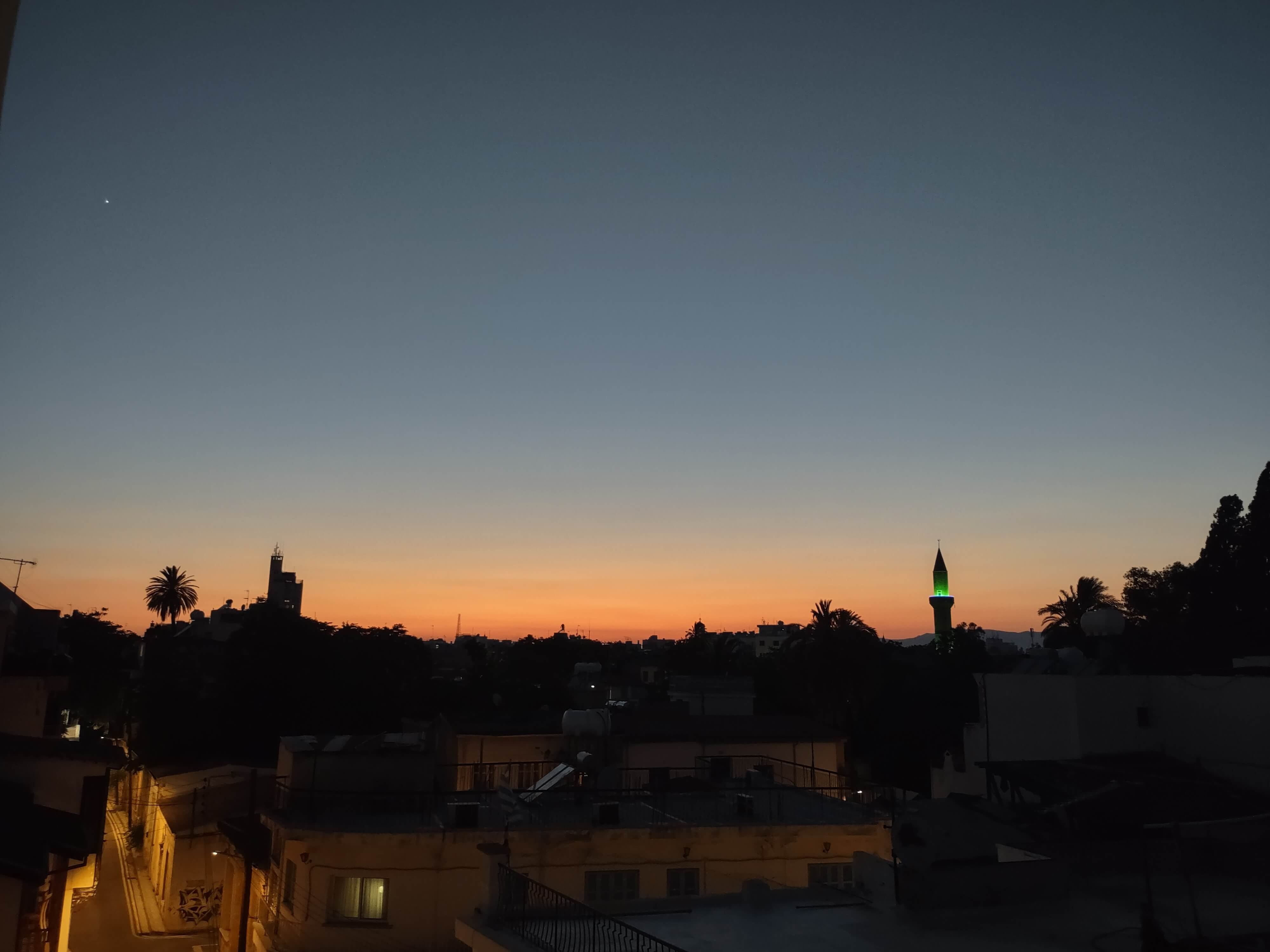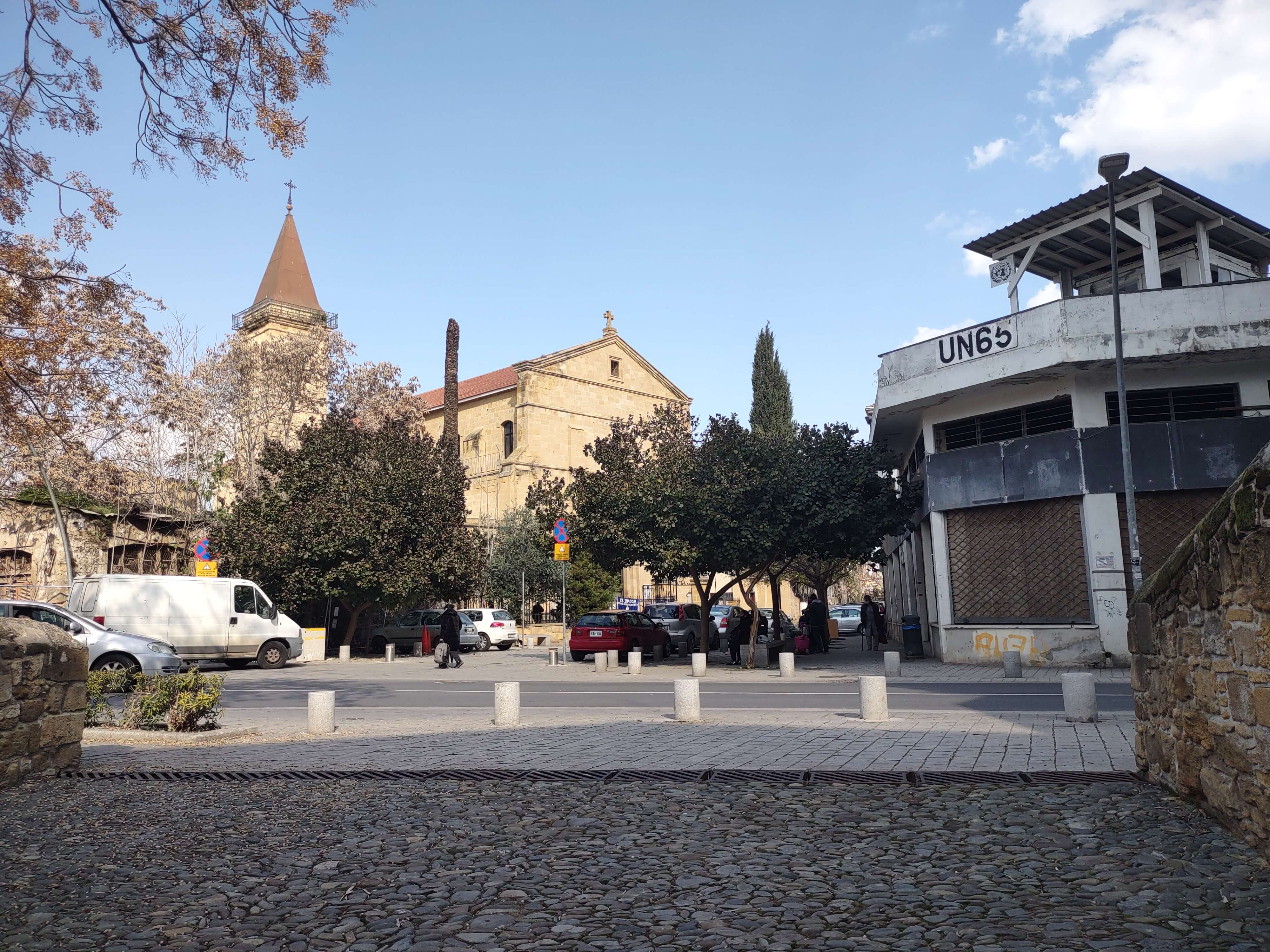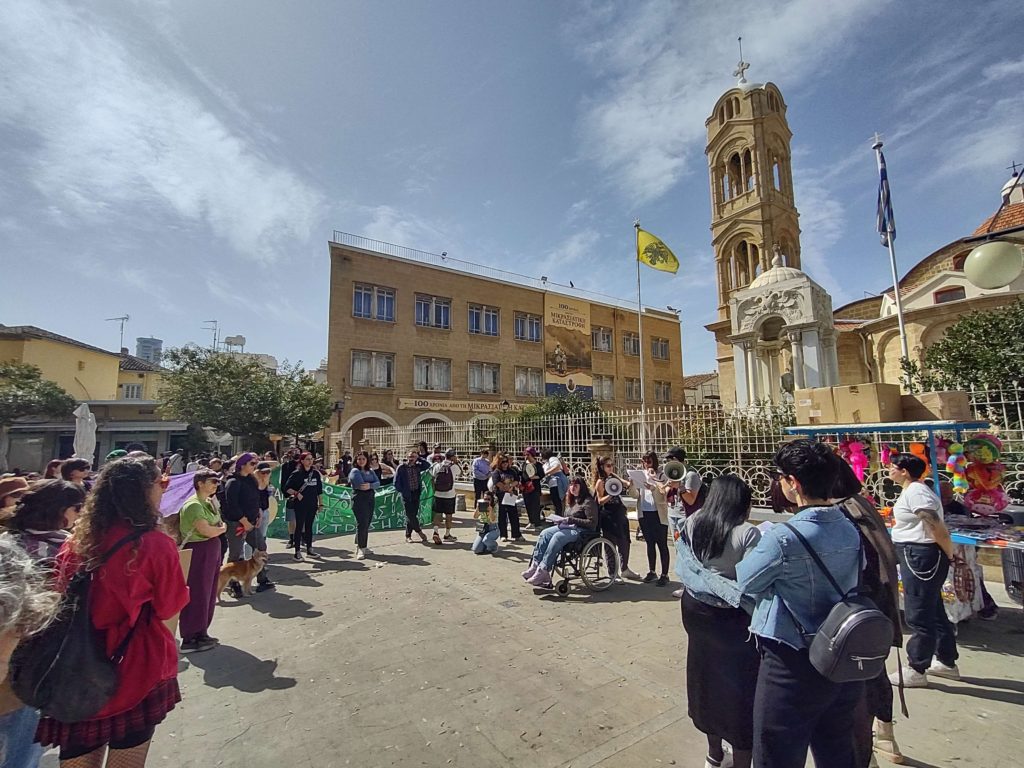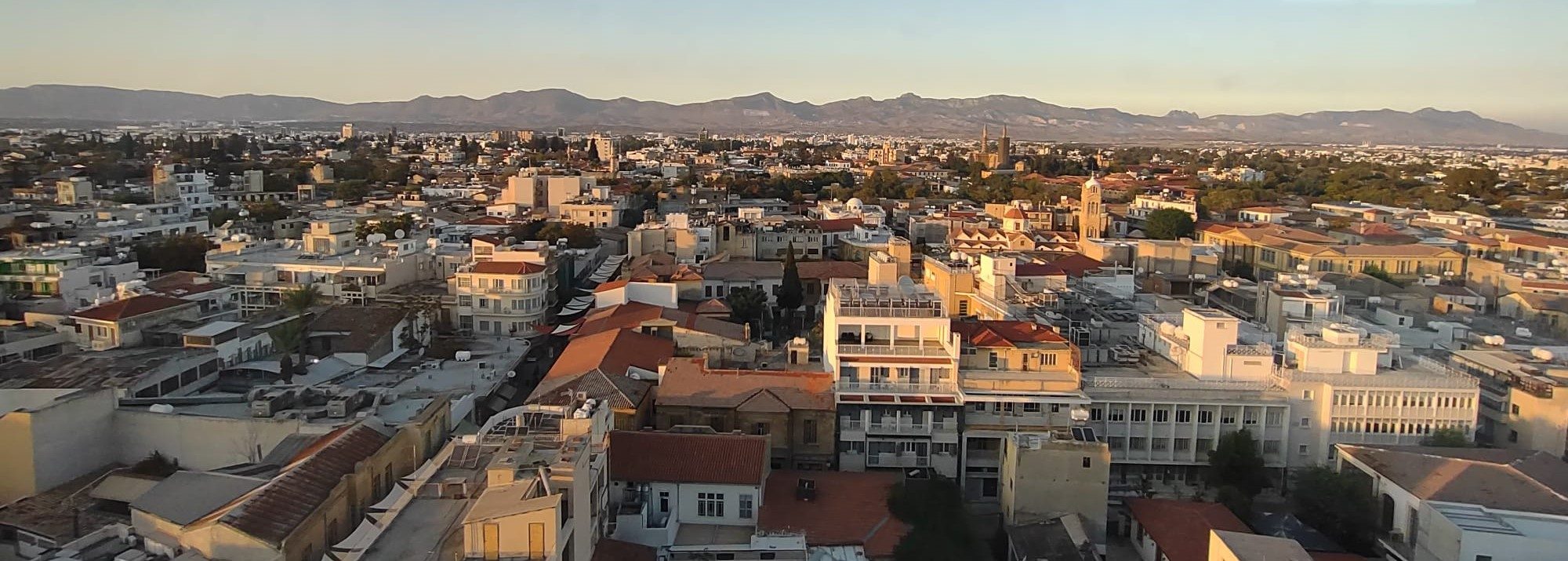It is around 5 am in Nicosia, the breeze blows from the windows, all open to survive the summer heat. As often, I cannot sleep.
It is around 5 am in Nicosia and from my room I hear the Azan. At this time of the day it is the best sound.
Immediately I relax, my mind travels east, I am not in Cyprus anymore, and I know I will fall asleep soon.

The Azan is the call for prayer, broadcasted 5 times a day from the speakers in the north. It is possible to hear it in most parts of Nicosia municipality.
Sounds do not know any border.
It is indeed an interesting fact that most foreigners that move here are amused by the call for prayer. Even if they are not religious, it is one of the things they miss the most when they leave Cyprus.
Around 20 minutes later it is time for the first church bell.
I can understand when there is some religious holiday or some important Church-related event based on the tone and the frequency of the bells. Throughout the day, the bells will ring several times to call for a mass or funeral.
Sometimes, the mass is even broadcasted from the church’s speakers.
Walking in the old city on a Sunday morning means hearing many religious chants. There are several minor churches and congregations that celebrate on Sundays, most of them don’t have a dedicated religious building, and believers meet in a shop, a garage or an apartment.
While you walk, you will hear choirs, and people praying in different languages.

The day is usually quiet in the little residential streets of the old city.
A fruit vendor pass by with his car, repeating with a speaker “kali karpoutzi, 5 euro” (nice watermelons, 5 euros).
Italy, Cyprus, Greece, Palestine, is it possible that these street vendors have always the same voice?
The neighbor in front of me listen to his Russian radio, who knows what they are saying! My neighbor downstairs listens to his usual Greek and Arabic music.
In most central locations the street are busy, people meet friends, talk, you hear them laughing and telling their stories. They use Greek, or Turkish, or both especially when old friends meet. But also English, French, Arabic, Filipino, and many more.
Most demonstrations march in or near the old city, and stop at Eleftheria Square. If you are close, you can hear their slogans.

Two days per week, if you pass by Oxi market, you can hear the farmers promoting their products with the best offers.
It is a chance to practice your Greek.
Nights are not too loud and you can easily sleep with the windows open, unless you have a bar or pub under your house.
During weekends there is always some music playing not so far, either on one side or the other. Often you will be there and not in your house.
Voices, songs, sounds that know no borders. This is what living in a multicultural neighborhood means.
